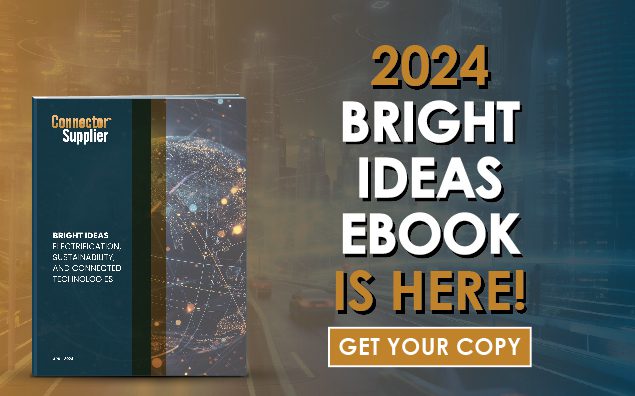Three Years On — How is Brexit Impacting the Electronics Industry?
The question was simple enough: leave or remain? But nothing has been simple since. As the second deadline for the UK to leave the EU approaches, we take a look at the preparations and obstacles involved in this momentous decision.

More than three years ago, on June 24, 2016, the UK was reeling from a referendum result few expected. In a referendum that saw the UK’s largest election turnout (72%), the electorate voted to leave the European Union (EU), a block of 28 countries of which it had been a part since January 1973.
Prime Minister David Cameron, who advocated for the ‘remain’ option, announced that he would stand down as party leader. Home Secretary Teresa May was elected by party members as his successor. Her first task was to sign Article 50, which triggered the process of the UK leaving the EU and for negotiations between the UK and EU about their post-referendum relationship to begin. The initial date for departure was set as March 31, 2019, by which time the UK and all member states of the European Commission (acting for the EU) were expected to agree to the terms of the UK’s withdrawal to determine the framework for the two parties’ future relationship. Ahead of these negotiations to thrash out the withdrawal agreement, May told the country that “no deal is better than a bad deal.”
The European Commission held talks with the prime minister’s representative, Brexit secretary David Davis, but when the plan was approved by the cabinet, Davis resigned, saying he felt unable to deliver Brexit as the approved plan “gave too much away.”
The Cabinet-approved withdrawal agreement was presented to Parliament, which has to agree it for it to pass into UK law. It sounds simple enough, but three attempts and three defeats later, the agreement was not passed as an Act of Parliament, the deadline of March 31 came and went, and May resigned. Another leadership contest took place. Boris Johnson, Secretary of State for Commonwealth and Foreign Affairs, became prime minister in July 2019 and vowed the UK would leave the EU on the second deadline date, October 31, “do or die.”
What’s Holding Up Brexit?
To meet this pledge, Johnson has to present a new withdrawal agreement to the EU for approval and have that passed by Parliament. The clock is ticking and everyone is talking about the possibility of a “no-deal Brexit.” Legislation was passed that requires the prime minister to request another extension (to extend beyond October 31) by October 19, 2019. On October 19 Parliament voted to defer a decision on the bill. However, on October 22, the House of Commons is again asked to look at a withdrawal agreement that might yet enable the UK to exit the EU by the end of October.
The EU Treaty requires that any member state wishing to leave the EU does so with a negotiated withdrawal, rather than an abrupt, or hard exit. It does, however, also provide that if an agreement cannot be reached and the seceding country leaves, then EU Treaties do not apply to that country and the EU and the seceding country would revert to World Trade Organization (WTO) rules for tariffs on imports and exports.
The Irish Backstop
The sticking point for many MPs is that some believe the UK should remain in the EU. (Of the 650 MPs in the Commons, over 400 voted remain, yet represent constituencies that voted to leave. There are also some leave-voting MPs representing remain constituencies.) Some MPs object because it does not include a customs union — a free trade area with a common tariff for external goods — with the EU. Such an arrangement would keep the present tariffs but does not cover services (legal counsel and IT), which are a significant trade sector for the UK. Being in a customs union would also prevent the UK from making trade deals at a time when it may be looking to markets outside of the EU, such as China, the US, Canada, Australia, and New Zealand.
There is also serious opposition to the withdrawal agreement’s backstop clause. This is the provision, drawn up by Brussels and agreed by May, that Northern Ireland is to remain subject to EU regulations on food, farming, and industrial goods so that these products do not have to be checked as they move from the Republic of Ireland, or Eire, which is in the EU, and Northern Ireland, which is a province of the UK.
It in effect moves the Irish border to the Irish Sea, as goods will be checked on the UK mainland. It also keeps the whole of the UK in the EU custom zone to allow movement of goods without being subject to tariffs. The backstop clause provides that Northern Ireland will be bound by EU law for an unspecified length of time, which will be determined by the EU. However, Northern Ireland, while still bound by EU regulations, will not be able to vote on any new EU laws.
What Do Companies Think?
Brexit has serious implications for electronics development, manufacturing, and distribution for companies that manufacture and trade in the UK. The final dimension of Brexit’s trade agreements will impact imports and exports of components, materials, and finished products for the UK and its trading partners.

Phil McDavitt, managing director at Nicomatic
Nicomatic, a French company that manufactures components and connectors in eastern France, is one company that is closely watching negotiations. Managing Director Phil McDavitt said, “The UK is an important market for Nicomatic, but we sell worldwide, so investment policy is determined by global market conditions.”
He does not see the feared no-deal scenario as a major concern for the business. “If the UK leaves without a deal, it will not affect our manufacturing plans, since we manufacture in France, within the EU. Initially, it is possible that there are shipment delays to the UK due to increased paperwork, which may increase lead times. We believe that any such disruptions will quickly settle down once people are used to the new systems. Also, it’s worth stating that Nicomatic is well-positioned, since we employ modular manufacturing techniques at our manufacturing center near Geneva. We can easily and very quickly react to lead time fluctuations.”
Nicomatic uses international shipping company UPS; so, although it may be expedient to plan for some initial disruption, UPS will be able to advise on any new processes. “It is our understanding that for the first 12 months after Brexit, certain goods being imported into the UK from the EU will be subject to import taxes. However, it is also our understanding that connectors will not be subject to import tax — at least for the first 12 months. After that, there may be new rules, or possibly we may have to trade under WTO rules. As with all pricing issues, we would expect to enter commercial discussions with our customers to ensure a smooth continuation of business.”

John Hall, managing director at Cliff Electronics
John Hall, managing director at Cliff Electronics, is also confident that Brexit won’t be too much of a disruption. “We haven’t increased our stocks, because we always ensure we have sufficient stock for our minimum order quantities,” he said. The company has manufacturing sites in the UK and in Asia. “Our customers also have stocks, so they won’t be in a mad rush, although some companies may have dropped a clanger by not ordering products in time.”
The immediate market response to the Brexit vote was to lower the value of the pound, but even this had a silver lining. “Our exports are flying because of it,” said Hall, adding that prices may have risen but the lower exchange rate makes them cheaper for buyers.
Going forward, Hall said, things are uncertain. “A lot of people haven’t got a clue. We won’t know until it happens. For an agreement, there has to be some uptake. I understand [tariffs are] not going to change immediately. There will be at least two years of trade [while the Political Declaration, setting out the framework for future relations between the UK and the EU, is established]. There is going to be an impasse for a couple of years.”
When the UK leaves, it is expected that it will trade on WTO tariffs and for Hall, this does not pose an immediate problem. “I can’t see what will be effected,” he said. “The commodity codes are set by the government and HMRC [Her Majesty’s Revenue and Customs] sends emails and information by mail to keep up to date with the paperwork.”
Like McDavitt, he believes there will be little long-term disruption. “Things will stay the same for a little while, it will affect transportation and how to get goods into a country for a few years. You can’t just switch it off, but I think it is over-exaggerated,” said Hall. “There will be a crash, then it will recover. [Ports] are hyped up for [Brexit] with lots of resources to try and check the majority of boxes.”
“To be honest, I’m more worried about the China-US trade disputes,” said Hall. “This will be the bigger hit and it will be global,” he warned. “Trade embargos will affect everyone, it will affect global growth, and prices will increase.”
Politically, the mood on Brexit swings between trying to get a deal to please the majority versus a complete, acrimonious divorce versus trying to stop it altogether. What is clear is that the electronics industry is prepared to weather this uncertainty, and then life will go on, whether the EU includes the UK or not. An initial disruptive phase will give way to a pragmatic, mutual desire for international trade.
Update: The House of Commons adjourned on October 22, 2019, after passing Prime Minister Boris Johnson’s Withdrawal Agreement Bill, but voting against the plan’s fast-track timetable to exit the EU. This effectively leaves the UK, once again, in limbo. An October 31 withdrawal is unlikely. Connector Supplier will continue to monitor this important world event and its impact on the electronics industry.
Like this article? Check out our other Connector Industry News, forecast, and manufacturing articles, our 2019 Article Archive, and our Industry Facts & Figures page.
- Matter: A Show of Unity for Connectivity - September 5, 2023
- Brexit Update: UK Connector Industry - March 28, 2023
- Sensors Make it Plain Sailing for a Smart Ferry - February 21, 2023







